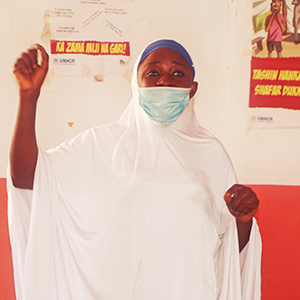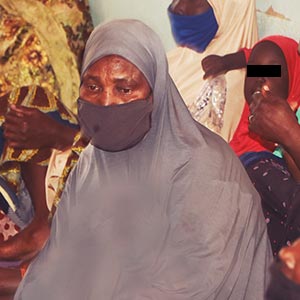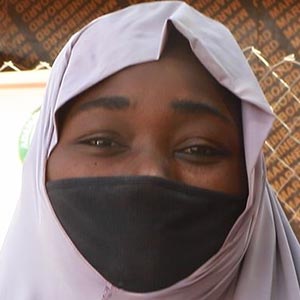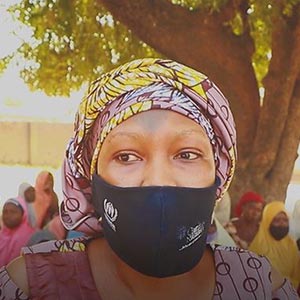Sexual and gender-based violence remains a threat to the wellbeing of girls and women affected by humanitarian crisis. It is a menace that worsens the trauma for women and girls who have already experienced the loss of loved ones, livelihood and shelter. Experience of any form of sexual and gender-based violence often leave deep-seated emotional scars and physical injuries that may affect survivors in the long-term and prevent them from achieving their full potential in life. Unfortunately, this is the reality for women and girls who are internally displaced by the humanitarian crisis in North-East Nigeria.
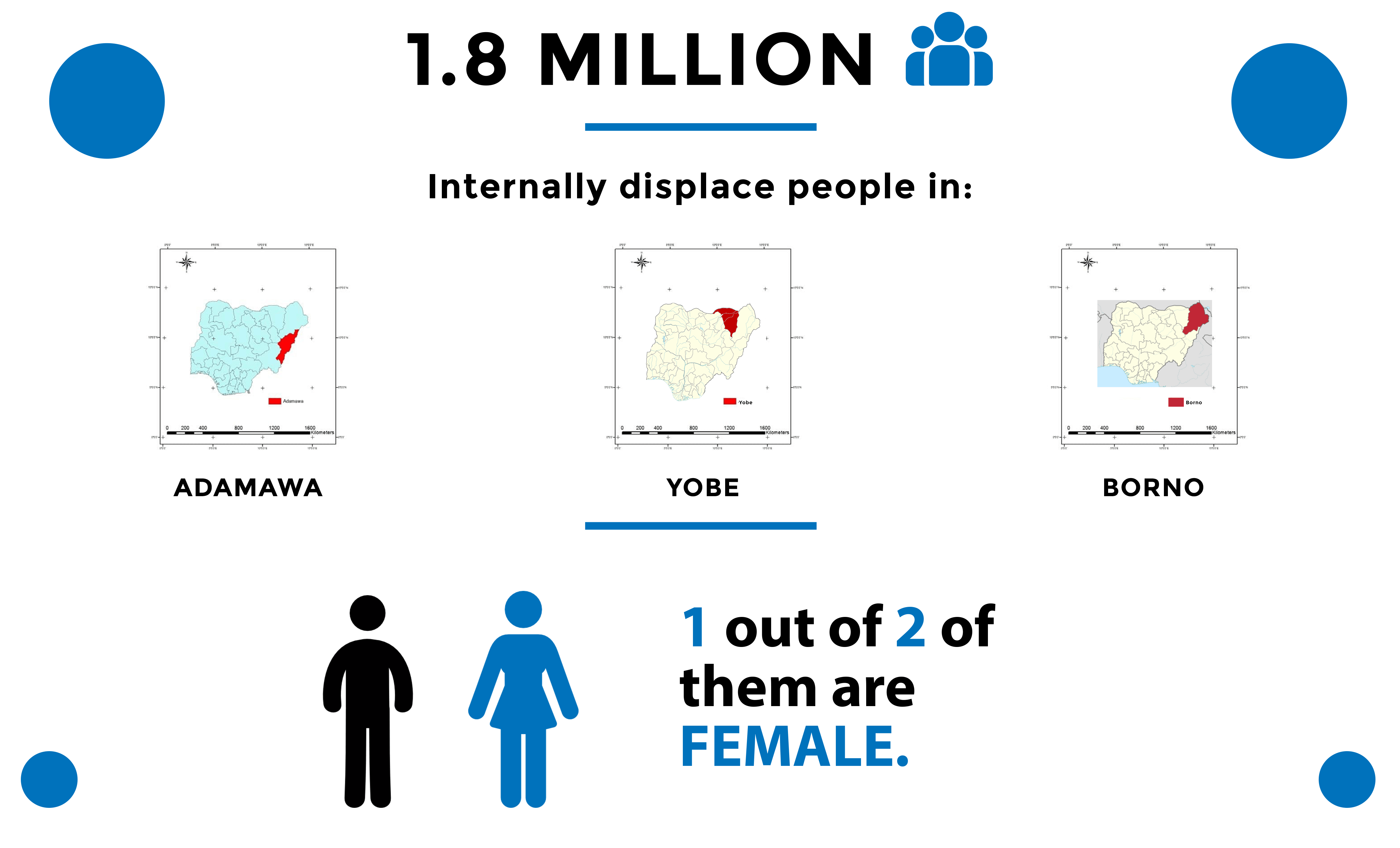
To respond to this crisis, UNHCR provided funding to FHI360 to implement “the prevention, risk mitigation, and multi-sectoral response to SGBV” project. This project is being implemented in Banki and Ngala local government areas (LGAs) in Borno State and Yola and Mubi LGAs in Adamawa State.

Through active engagement with the community leaders, this project aims to reduce the risk of SGBV and improve the quality of response. The project also addresses the deeply rooted cultural and gender norms that promote violence against women and girls in the communities.
The project also provides the following package of care to women and girls who are either internally displaced or members of the host community using the Women and Girls’ Safe Spaces;
Psychosocial support.
Economic empowerment.
Medical response to SGBV.
Access to justice.
Peer to peer education to female survivors of sexual and gender-based violence.
Survivor-centered case management.
I. The Women and Girls Safe Spaces have helped the women to build friendships and sense of community.
A key approach for this project is the running of four Women and Girls’ Safe Spaces across the 4 project LGAs. These are spaces where women and girls who have experienced varying forms of sexual and gender-based violence find safety. This is achieved by providing them with a safe space where they receive psychosocial support, have an enabling environment for them to build social networks without fear of bias and judgement, acquire livelihood and entrepreneurial skills, gain access to medical and legal services for SGBV and gain information on issues that affect women and girls in their community, learn to solve problems and improve relationship with men in the community.
A key approach for this project is the running of four Women and Girls’ Safe Spaces across the 4 project LGAs. These are spaces where women and girls who have experienced varying forms of sexual and gender-based violence find safety. This is achieved by providing them with a safe space where they receive psychosocial support, have an enabling environment for them to build social networks without fear of bias and judgment, acquire livelihood and entrepreneurial skills, gain access to medical and legal services for SGBV and gain information on issues that affect women and girls in their community, learn to solve problems and improve the relationship with men in the community.
The non-judgmental and bias free environment in the Safe Space have helped the women and girls to shed off deeply rooted religious and cultural biases against women and girls who do not share their religious beliefs or culture.
This non-judgemental and bias-free environment in the Safe Space has a long-term impact on building peace and harmony in the community.
II. Women and Girls gain access to life changing medical care
The Women and Girls Safe Spaces have also facilitated medical response to survivors of SGBV. When a survivor of SGBV presents at the Women and Girls’ Safe Space, the case workers assess the survivor to find out if she has need for medical care. As soon as the medical need is identified, the case worker facilitates referral to the appropriate health facility and supports the survivor to navigate the service delivery points in the health facility. This ensures that the survivor completes this referral and gets the needed care.
Fatima (not her real name) was abducted and forced into marriage at age 14. She got pregnant and her delivery was complicated by vesicovaginal fistula. Fatima learned about the safe space through community volunteers in Mubi and was referred to Adamawa State Specialist Hospital, Yola. She was supported to navigate the various through the hospital and she benefitted from the free surgery provided by UNFPA in September 2020.
This access to much needed medical help has reduced the morbidities resulting from sexual and gender-based violence in the community, enabling women and girls to stay well and look after themselves and their families.
III. Peer Education makes women to build better relationships in their community
Another key service provided by the project is Peer Education. This is delivered in a structured manner in a group of twenty participants for a duration of 10 weeks. The groups are segregated by age and sex. Hence, typical group formation has the following features:
- Men – 20 per group
- Women – 20 per group
- Adolescent boys – 20 per group
- Adolescent girls – 20 per group
Peer education is provided by trained community volunteers who hold a session with each group once a week. This is augmented by weekly coaching and mentoring sessions for community volunteers. Topics taught include the reality of the local environment, exploring gender norms, power dynamics, women empowerment, and how to prevent SGBV in the community.
Peer education helps women to build better relationships with their spouse and community
IV. Peer Education makes women to build a sense of agency
Peer education has also helped women and girls to build their sense of agency. The cohort that was graduating collectively saved money weekly, out of their own volition to celebrate their graduation from peer education after they had completed the 10-week program. They made matching outfits, made petroleum jelly, and bought refreshments for their graduation. Their sense of agency over the skills they learned and the community they built at the safe space enabled the women to invest in their community by patronizing the businesses that sell these uniforms they bought in preparation for their graduation celebration.
Over time, these women have successfully built an institution for themselves in the safe space. It has become a place where they draw strength and courage to be socially, emotionally, and economically stable. they are aware that by the empowerment they have received and their ability to support their families and communities, they are not only seen but heard, their voices matter, they are decision-makers.
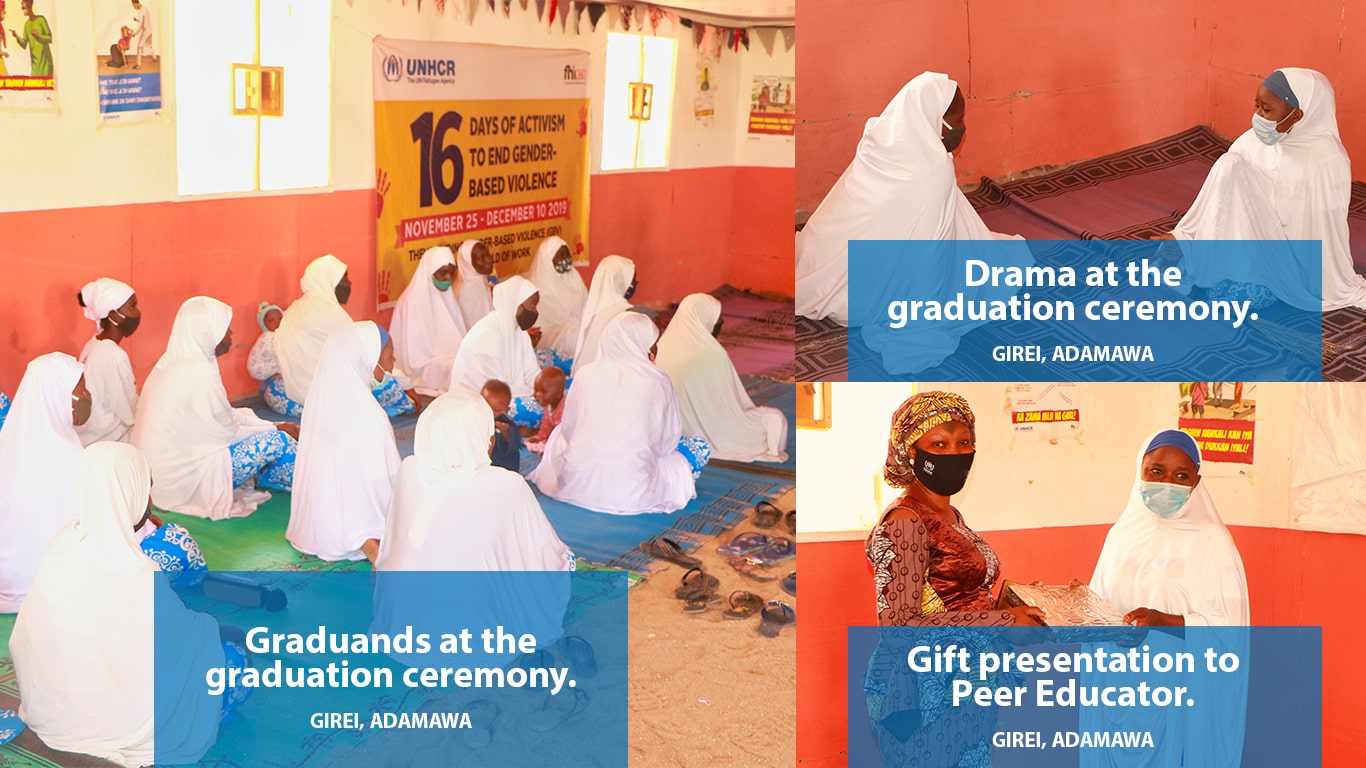
This is a story of Hauwa Abba, a mother of five, who was displaced from Gwoza, Borno State and sought refuge in Girei LGA of Adamawa State. Hauwa joined the safe space since its inception in 2018, she has since learnt so many things from the concepts of gender, to what gender based violence is and what it is not. She has also improved her cap making skills and went further to join the tailoring class and has since started making an in income from these.
Hauwa’s husband abandoned her and their children in an open shelter for a period of 8 months with no word from him and she had no idea where he was but she knew he was alive. She thrived and struggled alone to make ends meet and today Hauwa is happy to say that with the support she had received from the safe space, she is now empowered and has enrolled her children in a nearby public school and also rented a safer room for them to live in.
Her husband returned a few months ago and the intriguing part of her story is her refusal to be united with him until they both tested for STDs, she said “bayan duk abin da aka koya mana a safe space, ai yanzu na san darajan lafiyan jiki na.” (After all we have been taught at the safe space, I am now fully aware of the importance of living a healthy life and will not compromise on it). Her husband refused but she insisted and went ahead to involve some community leaders who intervened and asked them both to get tested.
Hauwa paid for the tests carried out in two separate hospitals and the results all came negative. They are now united. She has accepted her husband and is now complementing his bread-winning effort by her continuous financial support to the family. Now, things are a lot easier and they are making plans to move their children to a private school.
V. Women learn livelihood skills and build small businesses
The project supports the women and girls who visit the safe spaces to identify livelihood skills that they prefer to learn. These may include bead-making, sewing, handicraft making, soap and cream making, etc. The project enrolls women and girls to learn these skills through livelihood building programs offered at the safe space. Material grants are also provided to enable women and girls to practice what they have learned. In addition to this, the project supports the women and girls to learn how to build a profitable small business through the acquired livelihood skills. This involves supporting them to identify marketing and sales channels within the community. The project also supports women to gain financial inclusion by educating them on how to open and manage bank accounts.
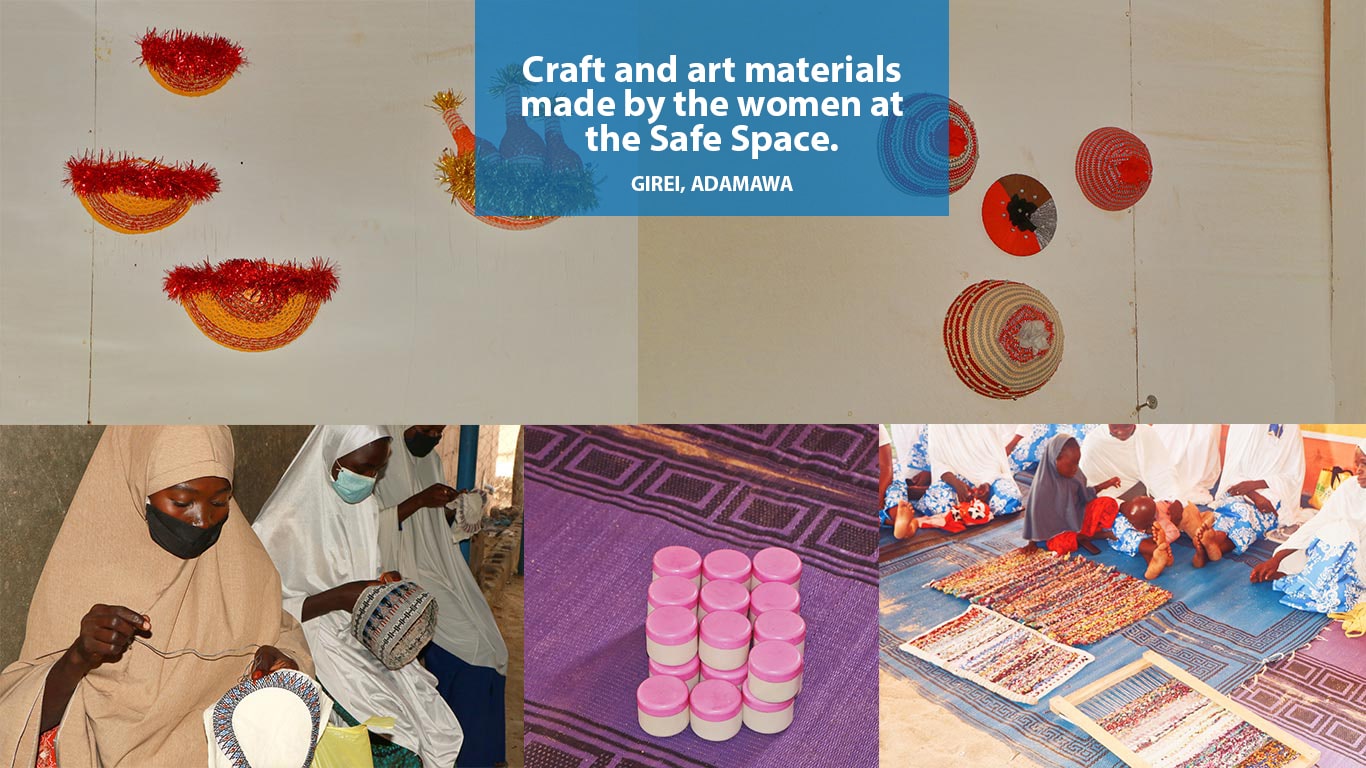
Connecting the dots of friendship, trust and economic empowerment
The friendship and trust the women have developed over time in the safe space is pivotal for laying a foundation for peace in these communities.
The livelihood skills and material grants provided are the building blocks of earning a living and gaining financial autonomy for the women and girls.
The willingness to collaborate with other women to start a small business offers opportunity for both sustainability and scale up.
This reaffirms FHI 360’s vision that all individuals and communities in North-East Nigeria affected by the ongoing conflict will have the opportunity to reach their highest potential through locally driven solutions
Call to Action
Partner with FHI360 to drive meaningful change in the North-East.

